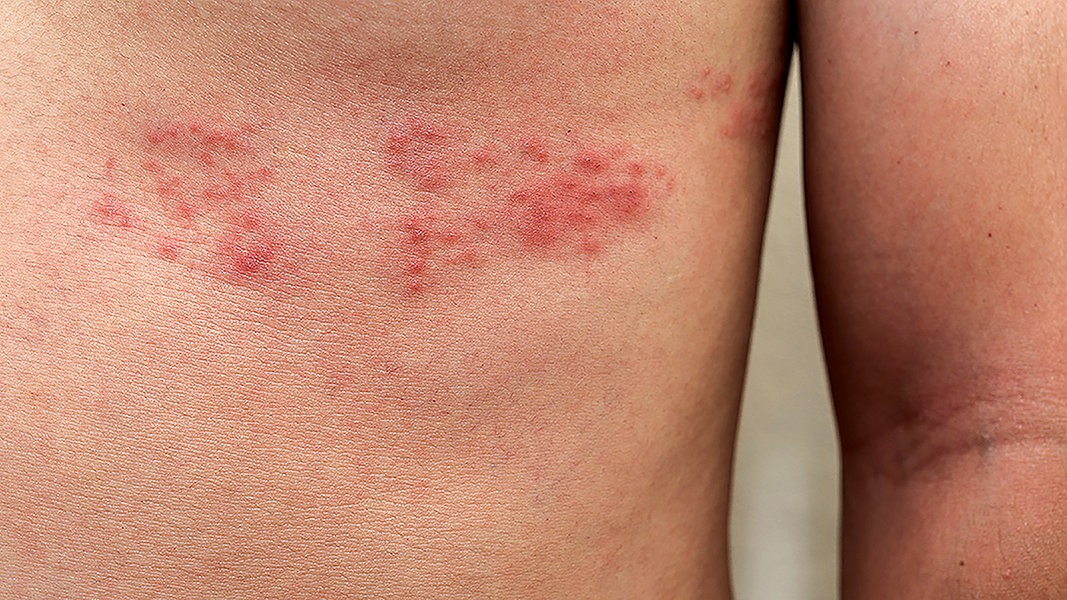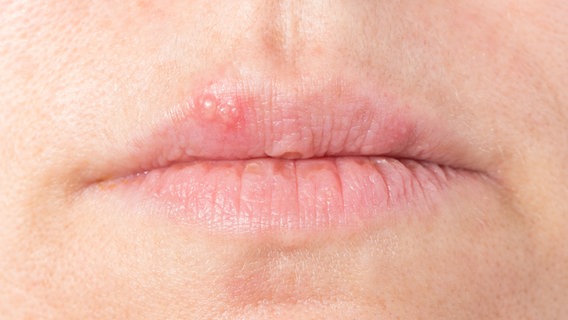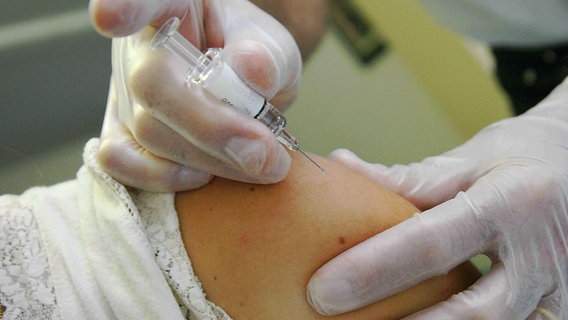Status: 03/24/2023 4:55 p.m
Shingles can occur as a result of chickenpox infection. What are the symptoms of shingles? And how long does a successful treatment take?
About two out of ten people who have had chickenpox will also get shingles in their lifetime. In Germany, more than 300,000 people are affected each year. The disease particularly affects older people because the immune system weakens with age.
What is shingles?
After a chickenpox infection, varicella-zoster viruses nest in the nerve roots in the area of the spinal cord or in the cranial nerves. Anyone who has ever had chickenpox carries the virus in their body for life. Under certain circumstances, years after the chickenpox infection, the varicella-zoster virus multiplies and consequently causes shingles.
These are the symptoms of shingles
The varicella-zoster virus, which has established itself in the spinal cord after chickenpox, migrates from the spinal cord along the lateral nerve cords. If the inflammation reaches the skin, the typical painful rash with small blisters develops there. Due to the path of the nerve cords, the rash usually has a striped shape and only appears on one side of the body. In the torso area, it is reminiscent of a belt – hence the name shingles. However, it can also develop on the chest, arms, head, or face.
How long does shingles last?
As long as there are no complications, shingles is over after two to four weeks. The disease progresses in several phases: Even before the rash forms, those affected usually feel exhausted and tired, sometimes have a slight fever. It can also cause tingling under the skin. After two to three days, the typical skin rash appears, which lasts up to five days. After that, the blisters dry up. Yellowish crusts form, which gradually fall off.
Is shingles contagious?
People who have never had chickenpox can become infected by contact with the vesicular fluid from shingles. Only when all the blisters have dried up and the last crust has fallen off is there no longer any risk of infection. An infection usually initially leads to chickenpox, not to shingles. People who have had chickenpox or who have been vaccinated against chickenpox are better protected, but also potentially at risk of infection.
treatment of shingles
Pain and fever can be relieved with pain relievers and antipyretics. For severe pain, prescription pain medications can sometimes be prescribed as well. The aim of treatment is to relieve the itching and dry out the blisters. Antiseptic or anti-itch lotions or powders, which often contain tanning agents, zinc, menthol or polidocanol, can help.
Special medications are rarely necessary
Antivirals against the herpes zoster virus are only recommended for:
- shingles in the head and neck area
- a weakened immune system or kidney failure
- severe courses or an increased risk of complications
Taken early, the antivirals can speed up the healing of shingles and shorten the duration of the pain.
Shingles Vaccination: Who Should Get the Vaccination?
To prevent shingles, the Standing Vaccination Commission (STIKO) has been recommending vaccination with an inactivated vaccine for people over the age of 60 since 2018. This means the vaccine contains viral components, not weakened viruses. The STIKO recommends vaccination for people over the age of 50 for chronic diseases such as diabetes mellitus, rheumatoid arthritis or an immune deficiency. A vaccination consists of two vaccination doses at an interval of at least two and at most six months. The vaccination costs are covered by the statutory health insurance companies.
Duration of protection and side effects of vaccination
Because the vaccine is still relatively new, it is not yet possible to say with certainty whether it will last longer than four years. After the vaccination, there may be side effects such as skin reddening and rashes, pain at the injection site or swelling. These are signs that the body is dealing with the vaccine in a meaningful way.
Complications after shingles: post-herpetic neuralgia
Out of 100 people, 10 to 20 still have significant pain from the neuritis associated with shingles after the rash has healed. This is known as “post-herpetic neuralgia” or “post-herpetic neuralgia.” It can last for weeks, months or even years. Post-herpetic neuralgia is the most common complication after shingles. The main symptom is nerve pain (neuralgia), and the skin is often hypersensitive and itchy.
Treatment of post-herpetic neuralgia
Treatment is possible with antispasmodic medication (antiepileptics), painkillers, anxiolytic medication (antidepressants) or analgesic patches. If nerve pain persists, antiepileptic drugs such as pregabalin or gabapentin are also used. Both antiepileptics and antidepressants inhibit the transmission of pain to the brain and reduce the excitability of the affected nerves.
Ramsay Hunt Syndrome: Rare sequelae with facial paralysis
If the varicella zoster virus attacks the facial nerves in the case of shingles, this can lead to unilateral facial paralysis, hearing loss and earache. Here, too, there are cases in which the symptoms persist beyond the rash phase. Singer Justin Bieber was affected by Ramsay Hunt Syndrome for a few months last year. Therapy consists of a combination of aciclovir and systemic corticosteroids.
experts on the topic
Further information



